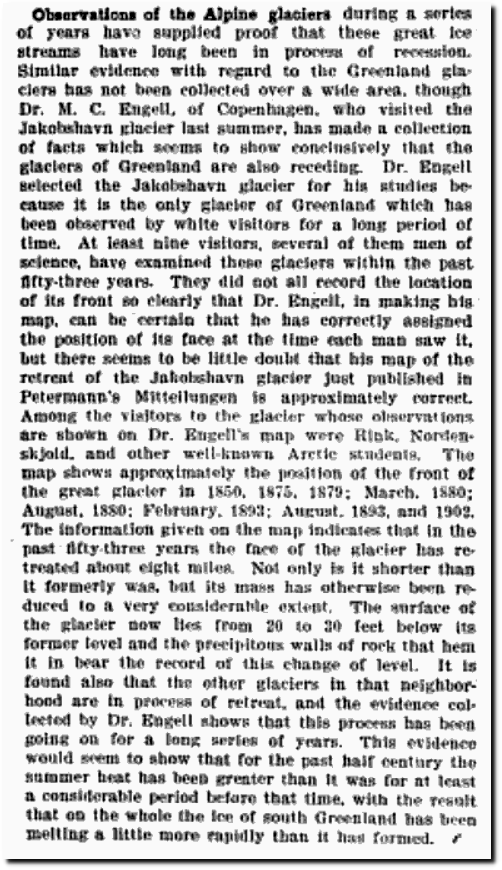Last week the Associated Press said Alaska was burning up.

December serving up baked Alaska and warming most of Arctic | AP News
Anchorage has record snow and precipitation .

Last week the Associated Press said Alaska was burning up.

December serving up baked Alaska and warming most of Arctic | AP News
Anchorage has record snow and precipitation .

“Early in life I have noticed that no event is ever correctly reported in a newspaper”
– George Orwell
The Washington Post is upset about the skin color of Argentina’s soccer team.

Then they described their math error as an “editing error.”

Black erasure in Argentina helps explain its World Cup team – The Washington Post


Nolte: Far-left Washington Post Has Lost 500,000 Subscribers
Climate alarmists used to say that global warming meant the end of snow. Now they say it causes more snow.
The National Climate Assessment wants global warming art.

Here is my entry :
“we have known for years … according to scientists”

We’ve Known For Years Global Warming Could Lead To A New Ice Age. Why Is No One Doing Anything?
According to NOAA, 1904 was the coldest year on record.
“Observations of the Alpine glaciers during a series of years have supplied proof that these great ice streams have long been in prove of recession. Similar evidence with regard to the Greenland glaciers has not been collected over & wile area, though Dr, M. C. Engell, of Copenhagen, who visited the Jakobshavn glacier last summer, has made a collection of facts which seems to show conclusively that the glaciers of Greenland are also receding.


Scientific American: Supplement – Google Books

Global Time Series | Climate at a Glance | National Centers for Environmental Information (NCEI)